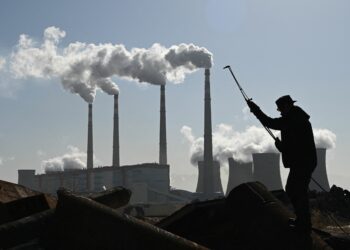In what was arguably the most in-depth dive into climate policy in the history of cable television, CNN held a seven-hour town hall marathon featuring 10 of the top U.S. presidential candidates September 4. Yet one of the most impactful and challenging facets of the man-made climate crisis, cutting down on carbon emitted from the massive (and growing) air travel industry, never came up.
Air travel accounts for a substantial portion of total greenhouse gas emissions in the United States. According to the Environmental Protection Agency, air travel emits 12 percent of all greenhouse gases from transportation and 3 percent of total greenhouse gas emissions.
Those figures are only expected to increase as the volume of air travel continues to rise. To put it another way, as the European Commission did, the aviation industry would be among the top ten emitters in the world if it were a country.
As it happens, jet fuel is one of the top expenses for airlines, so there is already some financial incentive for airlines to cut down on the amount of jet fuel they’re using. A lot of these methods are fairly straightforward including more aerodynamic planes, optimal engine placement, aircraft weight reduction, and different ways to make flight paths more fuel-efficient. Reducing carbon emissions is one thing, but eliminating them completely is more of a challenge.
Andreas W. Schafer is a professor of energy and transport at the University College of London Energy Institute. Schafer published a report in 2016 which offers a detailed overview of the costs and challenges associated with decarbonizing air transportation.
Electric Planes
“Fleet traffic rises about 5 percent per year and fuel burn reduction is about 2 percent per year, so the difference is that increase in fuel consumption and CO2 emissions is about 3 percent per year,” Schafer told The Globe Post.
“The hottest topic people are talking about these days is electric aircraft, but they will not have a major impact on that growth rate because it will take time for these aircraft to be technically and commercially viable. What we need are batteries with much higher energy content … This will certainly take a couple of decades.”
With cars, it’s relatively simple to make hybrid and electric vehicles that reduce carbon emissions from gasoline or eliminate them entirely. Replacing jet fuel with batteries, however, is more complicated since batteries large enough to store enough energy for long flights are much heavier than jet fuel, which has far greater energy density than even the most advanced batteries.
“You don’t have to be as energy-dense as jet fuel and most likely you will never get there … but you can do it with much lower energy density because you’re operating more efficiently,” Schafer said. “You may not need these enormous stage lengths that jet engines are capable of flying.”
According to Schafer, a short-range aircraft can travel 1,100 kilometers on a battery with 800 watt-hours per kilogram, which is about four times the current level of a lithium-ion battery. Flight, however, is only one area where electricity can do the work of jet fuel. Aircraft move on the ground all the time at airports, and taxiing of planes to and from the runway is another area where aircraft manufacturers are trying to cut down on emissions.
Biofuels and Electrofuels
Biofuels could also be a potential alternative to jet fuel, though similar to developing fully electric planes, using biofuels at a commercial scale comes with its own challenges.
“The nice thing about biofuels is in theory, it’s carbon-neutral because the CO2 you generate by burning the fuel would then be absorbed by the next generations of bio crops which would then be again used to produce biofuels,” Schafer said. “There are a couple of challenges. The main challenge perhaps is that they are not yet available in sufficient quantities.
Schafer said biofuels are one of two potential alternatives to jet fuel. The first is hydrogenated vegetable oil. Hydrogenation is a refinery process that already exists and would essentially be used to make vegetable oils into jet fuels.
“The challenge here is the resource base is not large enough,” Schafer said. “The large resource base that you need could potentially come from cellulosic biomass which is the part of the plant that lends the structure or strength to the plant and is therefore difficult to break down. There has been no commercial-scale process yet that would convert the cellulosic material into jet fuel.”
The other alternative to jet fuel would be electrofuels which are fuels made with CO2 and hydrogen through a process akin to photosynthesis, but electrofuels are also very costly and the process of making them relies on the use of carbon capture, which itself has yet to be deployed on a commercial scale and also raises concerns about sustainability.
Flight Shame
In order to make it to the U.S. in late August, the Swedish teenage climate activist Greta Thunberg chose to forgo air travel altogether and instead opted to travel by sea in order to avoid taking a carbon-intensive flight across the Atlantic.
In Sweden and across Europe, there’s been somewhat of a movement around “flygskam” or flight shame. The flight shame movement, as is suggested by the name, encourages people to rethink their flying habits and reduce flights or cut them out entirely in order to be more environmentally friendly. Anna Hughes is a cyclist and author from the United Kingdom and has committed not to travel by air.
“I learned that flying was the worst thing that you could do as an individual and I said I wouldn’t do it anymore,” Hughes told The Globe Post.
“I think everyone should stop flying even though I know that’s a very difficult argument to make because we live in a globalized society now where families are spread across the globe, and international business, etc. When we’re looking at the global carbon emissions, flying just doesn’t have a place in a sustainable future.”
Hughes acknowledges “putting the genie back into the bottle” with air travel isn’t easy, but she isn’t deterred and is currently in charge of the Flight Free U.K. campaign which is asking people across Britain to refrain from flying for the next year.
Demand for air travel is currently on an upward trend however so it’s all but certain that airlines, airplane manufacturers and governments around the world will have to pick up the slack and find ways to rapidly cut down on carbon emissions from air travel.
“What would probably need to happen are carbon prices that are much higher … in order to incentivize industry to invest more heavily in fuel-saving technology,” Schafer said.
“We are living at the moment in a fractured world. Europeans are very concerned, the U.S. government doesn’t seem terribly concerned at the moment, and the Brazilian government has probably a similar perception as the U.S. government. Getting something implemented on a global scale seems to be very challenging.”
More on the Subject
‘Whatever it Takes:’ Sanders Unveils Detailed, Aggressive Plan to Stop Climate Change




















